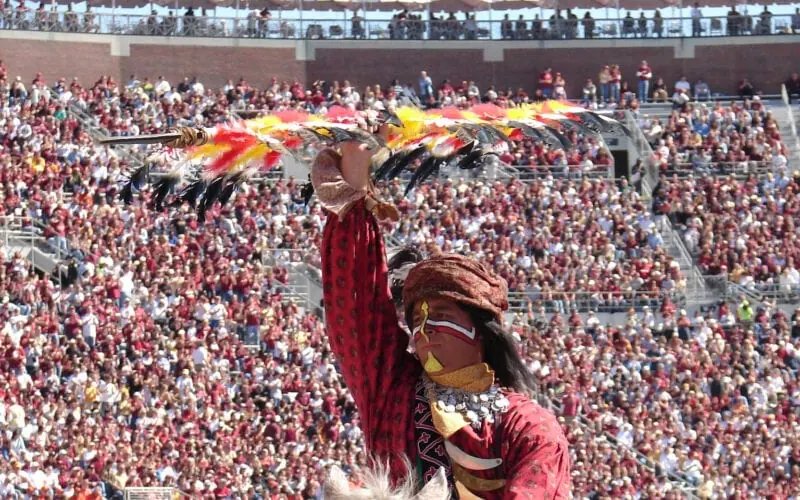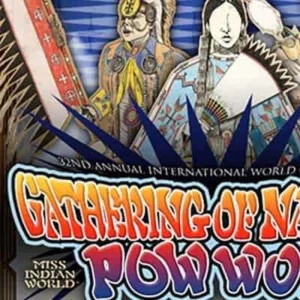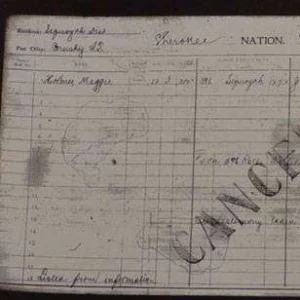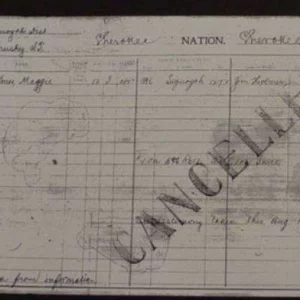Whether it be stereotypical, savage-looking images, prejudiced names, or how stadiums fill up with fans with red-painted faces participating in gestures related to hostility, Native American mascots in sports teams are still around – and some don’t look to be going anywhere anytime soon.
Since the 1960s, the use of Native American mascots has been a contentious issue among Americans. This is especially true between diehard sports fans and Native Americans who feel the images are oppressive, derogatory, and an example of cultural appropriation. There also continue to be many Indigenous people and others who consider these mascots and images to be a symbol of honor. Who is correct? And how far will Americans go to win their battle?
Let’s take a closer look at why this debate is so contentious and examine both sides.
The dark side of Native mascots use
The negative stereotyping of Native Americans goes back to European colonization, where early drawings, caricatures, figures, and prints show them as uneducated savages who need to be avoided or dealt with. As time progresses, harsh and unfavorable cartoons, images, and symbols of Indigenous people and culture inundate the media and pop culture. The viewpoint that the portrayal of Natives in this light is acceptable eventually translated to the world of sports, where teams such as the Redskins, Braves, Indians, Blackhawks, Chiefs, Warriors, and Eskimos had almost free reign concerning the use of Native cultural identity. These decisions included using mascots that may or may not be correctly portrayed in a cultural sense and in a positive light.
Some believe that using Native mascots is a form of cultural appropriation. They argue that it reduces complex cultures into simplistic stereotypes focusing on war bonnets, tomahawks, and teepees rather than celebrating their rich histories and traditions. This representation can be detrimental to native communities by perpetuating false assumptions about them, which could lead to further marginalization or oppression — something that should not be taken lightly.
According to experts with the American Psychological Association, the use of Native mascots “Undermine the ability of American Indian Nations to portray accurate and respectful images of their culture, spirituality, and traditions. Many American Indians report that they find today's typical portrayal of American Indian culture disrespectful and offensive to their spiritual beliefs.”
Once again, it is essential to note that while some may view these mascots as honoring native cultures, others may not necessarily feel the same about them due to their problematic implications.
The other side of the coin
Alternatively, many, including Indigenous people, support using Native imagery in sports. These individuals choose to focus on the positive traits within the Native culture, such as honor, perseverance, bravery, pride, and stoicism.
There are many reasons why teams choose to use Native American mascots. For example, some believe they can evoke an emotional response from fans due to their historical significance and respect for Native cultures. Additionally, some see it as a way to honor Native Americans and celebrate their culture in a positive light. Supporters also argue that if done respectfully, mascots can serve as recognition for the long-standing history between Native people and their respective regions.
In an interview about the Cleveland Indians’ name change, Tony Henson, a Cherokee man who is part of an advocacy group that supports teams keeping Native American-themed names, stated, “We see positive Native American imagery and sports as a powerful way to remain visible and relevant in mainstream America. And also, we feel like there are great opportunities for partnerships, especially between sports teams and educational institutions that have a native theme.”
Those who support keeping Native American mascots in sports teams do not feel they represent the culture as one-dimensional or in a derogatory fashion. They continue to believe that the positive and admirable qualities of being Indigenous should be promoted in sports.
It is safe to say that this debate will continue for years to come, given its complexity and ever-changing nature. People will have strong opinions if the debate surrounds sports, institutions, historical monuments, land, names of towns, or bodies of water; ultimately, people will have strong opinions. And whether or not you side with those who support or oppose the use of Native American mascots in sports teams depends on your perspective and opinions on this matter. Hopefully, through increased education and awareness surrounding this topic, we can create better understanding between all parties involved so that everyone’s opinion can be heard for productive dialogue moving forward.



